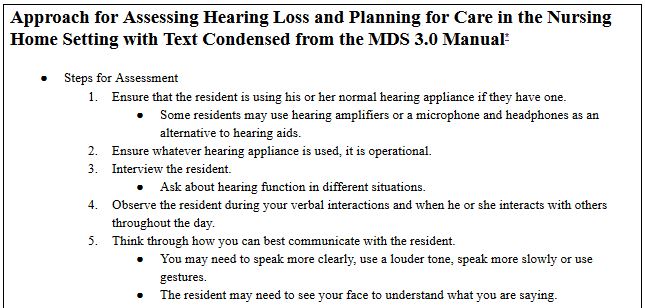The role audiology plays in public health continues to attract the attention of researchers. Whether policy officials and clinicians apply their findings remains an open question. Over the past several months, a wide range of research papers and assorted commentary on issues related to hearing loss and public health have hit the wires.
At the recently unveiled Johns Hopkins Bloomberg School of Public Health’s Cochlear Center for Hearing and Public Health website, Frank Lin wrote about the third era of public health. According to Lin, the third era of public health is currently underway. This third era is addressing the needs of older adults and optimizing healthy aging and implementation strategies to the enhancement of cognitive, social, physical, and mental functioning of older adults.
In another recent research paper, posted at the peered reviewed journal, Hearing Research, Jana Besser and colleagues from Sonova provided a concise literature review of the chronic conditions associated with hearing loss in older adults. Their article also offered commentary on future intervention strategies that more fully integrate audiology into healthcare.
Cost to Blame for Lack of Hearing Aid Adoption?
Perhaps the most eye-opening piece comes from researchers in Ann Arbor, Michigan, who examined the out-of-pocket costs of hearing aids. The study, conducted by researchers at the University of Michigan, found that about one-third of older adults who report hearing loss are using hearing aids. However, a disproportionate number of minorities and impoverished adults are non-users.
The study found that non-Hispanic whites, college-educated or have incomes in the top 25% of earners were nearly twice as likely compared to those of other races, education levels or income ranges to use hearing aids.
The researchers used survey data from the nationally representative Health and Retirement Study, and included data from more than 35,500 people nationwide over age 55 who said they had hearing loss. In addition, they conducted in-depth interviews with 21 other older adults with hearing loss in the communities surrounding the University of Michigan.
They concluded that cost was mostly to blame for hearing aid non-use. Further, they concluded the Centers for Medicare and Medicaid Services should consider covering hearing aids for Medicare participants.
Other important findings from the study included:
- The percentage of older adults with hearing loss who used a hearing aid rose with age, from about 15% of those in their late 50s to more than 57% of those in their late 80s.
- Forty percent of non-Hispanic white adults with hearing loss used a hearing aid, compared with 18.4% of non-Hispanic Black and 21.1% of Hispanic adults with hearing loss.
- Nearly 46% of hearing-impaired older adults who had gone to college reporting that they used a hearing aid, compared with just under 29% of those who hadn’t graduated from high school.
- Nearly half of those with incomes in the top 25% wore a hearing aid, compared with about one-quarter of those in the bottom 25%.
- There were no significant differences in hearing aid use based on the size of the community where the person lived, nor their level of health literacy as measured on a standard test.
- Interviews showed that cost, lack of insurance coverage (or knowledge about insurance coverage), vanity and stigma were common reasons for not using hearing aids. Participants also cited a lack of attention to hearing loss by their primary care provider, or worries about finding an audiologist they could trust.
- Many interview participants who used a hearing aid mentioned efforts that hearing-related professionals made to connect them to discounts and insurance programs.
The study can be read in its entirety here.
These recent studies and commentary support previous work done in the area of public health and hearing loss. In April 2018, for example, at the Journal of the American Medical Directors Association (JAMDA), Ellen McCreedy of Brown University and colleagues outlined the increasing prevalence of hearing loss for individuals over the age of 70. Given the likelihood of many older adults spending at least a portion of their lives in a residential living facility, the recommendations of the McCreedy et al study are important.
The authors summarized the care planning steps for nursing home residents who have difficulty with hearing. Their recommendations include simple hearing screening procedures and the provision of low-cost/low tech amplification devices, as shown in Table 1 below, which comes directly from the article and provides a sort of roadmap for professionals working with older adults in residential facilities.
Audiologists and other hearing care professionals are encouraged to carefully read these studies and apply their findings in implementation strategies that can address the communication needs of older adults in their own communities.
*featured image courtesy USAF, Delano Scott







